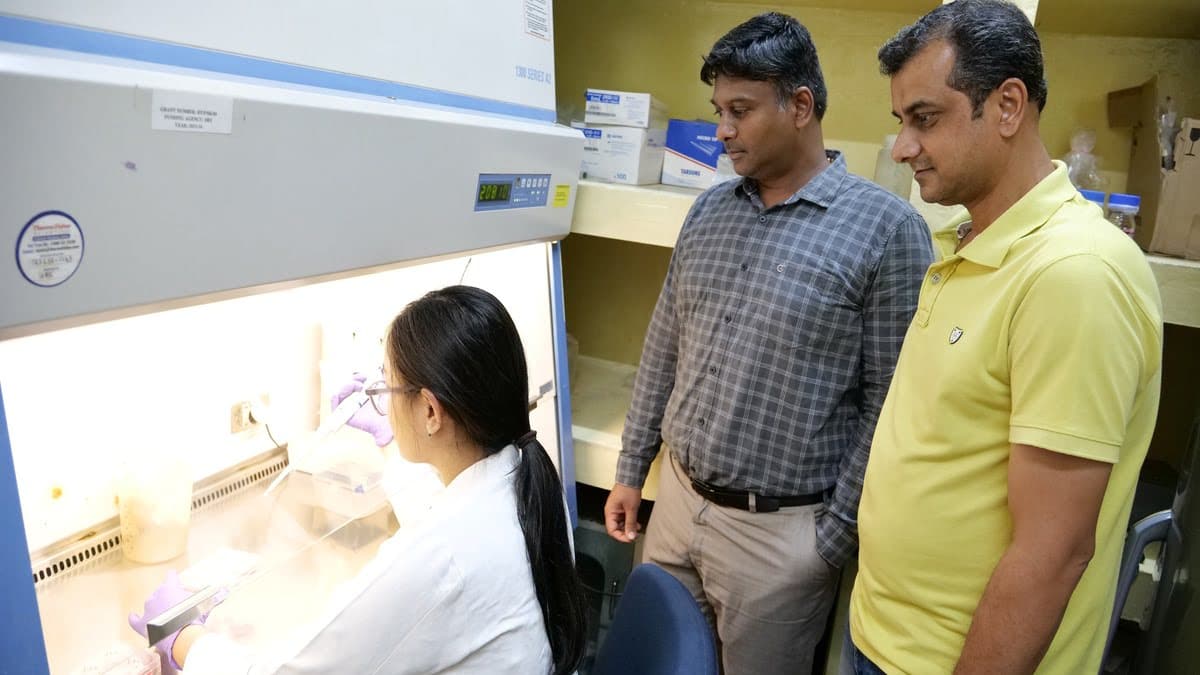IIT Guwahati develops clay-based sedimentation method to accurately detect COVID-19 virus
Gauri Mittal | June 6, 2025 | 05:27 PM IST | 2 mins read
Researchers at IIT Guwahati claim the new COVID virus detection method offers ‘a simple, affordable alternative’ to the current expensive ones

Researchers at Indian Institute of Technology (IIT) Guwahati have found a new way to detect and measure the presence of SARS-CoV-2, the virus that causes COVID-19. The method offers “a simple and affordable alternative to the complex and expensive methods currently in use for virus detection,” the institute said.
The new detection method is based on how quickly a mixture of Bentonite clay, the coronavirus, and electrolytes, settles. This is known as sedimentation.
For conducting the research, the team used plaque assay as a coronavirus surrogate, and RT-PCR as infectious bronchitis virus (IBV) substitute. The results for both these samples were more accurate than the standard detection methods used.
Researchers believe that this method can also be used for a number of other viruses like the newcastle disease virus (NDV) that affects poultry.
The findings of the study have been published in the peer-reviews journal Applied Clay Science, in a paper co-authored by professor TV Bharat, department of civil engineering; professor Sachin Kumar, department of biosciences and bioengineering, along with research scholars Himanshu Yadav and Deepa Mehta, at IIT Guwahati.
This novel discovery is looking to replace the current expensive and time-consuming methods of virus detection that are used currently. The Polymerase Chain Reaction (PCR) method, though accurate, takes a lot of time and resources. Antigen testing is quicker, but fails to deliver reliable results. These methods of COVID testing fail to meet the need at the resource-scarce area or pandemic-level urgency, the statement claimed.
IIT Guwahati COVID-19 research
To address these problems, the research team at IIT Guwahati has opted the use of Bentonite clay, “known for its ability to absorb pollutants and heavy metals due to its unique chemical structure”. The COVID-19 research was done to see how Bentonite clay and coronavirus particles interact in a salt environment.
“And the results were quite promising,” the statement said. IIT Guwahati researchers are now looking to collaborate with industry partners to conduct clinical trials. They want to attain more credibility for their research so that viral infection diagnoses all over the world can be made much quicker and cheaper.
“Imagine a world where detecting viruses is as simple as watching sand settle in water. That is the breakthrough we have achieved! This innovative approach offers a faster, more affordable, and accurate alternative to current methods, paving the way for better disease monitoring and treatment strategies, especially during pandemics,” Bharat said.
Follow us for the latest education news on colleges and universities, admission, courses, exams, research, education policies, study abroad and more..
To get in touch, write to us at news@careers360.com.